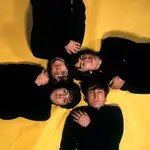Assad has left Damascus, says Russia, as Syrian army declares end of his rule
8 December 2024, 03:14 | Updated: 8 December 2024, 17:40

The Syrian government has fallen after a lightning offensive by anti-regime forces across the country - ending President Bashar al Assad's 24-year rule.
Mr Assad has left office and the country after giving orders for there to be a peaceful transfer of power, the Russian foreign ministry said in a statement on Sunday.
Russia was not involved in the talks surrounding his departure, the ministry said, but has been in touch with opposition groups - and urged all sides to refrain from violence.
The leader's whereabouts now, as well as those of his wife Asma and their two children, remain unknown.
Footage circulating on social media as the news emerged showed families ransacking presidential palaces in Damascus, with some taking selfies in the grand settings, as thousands celebrated in the streets.
Read more: Latest updates from Syria
Tehran, another of Mr Assad's allies, said it would continue to closely monitor developments in Syria and the region.
The fate of the country lies in the hands of the Syrian people and should be pursued without foreign imposition or destructive intervention, Iran's foreign ministry said.
Syrian rebels, made up of various opposition groups, said they were working to transition power to a new governing body with full executive powers.
"The great Syrian revolution has moved from the stage of struggle to overthrow the Assad regime to the struggle to build a Syria together that befits the sacrifices of its people," the coalition said in a statement, describing events as a new birth for "great Syria".
Later, in a post on the social media platform X, it added it aimed to build strategic partnerships within the region and the world.
Read more:
How London eye doctor became brutal dictator
The Assad I met was more oddball than evil
Syria's prime minister, who remains in the country, said he was ready to co-operate and offered a peaceful transition.
"I am here in my home," Mohammed Ghazi al Jalali said. "I have not left it and do not intend to leave, except in a peaceful manner that ensures the continued functioning of public institutions and state facilities, promoting security and reassurance for our fellow citizens."
Read more:
How the rebel assault unfolded
Assad fall 'not surprising'
Thousands celebrating in the streets
Thousands of Syrians, in cars and on foot, gathered in a main square in the capital Damascus chanting for freedom.
Saturday's advances on the capital marked the first time the rebels have reached the outskirts of the city since 2018, when government forces recaptured the area after a years-long siege.
In the key city of Homs - which rebel fighters seized after just a day of fighting - thousands more filled the streets after the army withdrew, dancing and chanting "Assad is gone, Homs is free", and "Long live Syria and down with Bashar al Assad".
The rebels have also claimed Deir el Zor in the east, and Suweida, Quneitra and Deraa in the south.
Mr Assad and his forces had faced a battle on three fronts - Hayat Tahrir al Sham (HTS) from the north, the Southern Front, and a Kurdish group in the east.
HTS leader Abu Mohammed al Jolani, who led the insurgency, declared "the future is ours" in a statement read out on Syrian state TV.
He said there was "no room for turning back" and his group was "determined" to continue on the path it started in 2011.
He later addressed a crowd inside the sprawling Umayyad Mosque in Damascus, where he described the fall of Assad as a "victory to the Islamic nation".
Read more:
The power dynamics of this volatile region will utterly change
Who are the Syrian rebels - and what are their plans?
Soldiers were reported to have deserted their posts and changed into civilian clothes as the rebels closed in.
Mohammed Amer al Oulabi, 44, was one of the many residents celebrating.
"From Idlib to Damascus, it only took them (the opposition forces) a few days, thank God. May God bless them, the heroic lions who made us proud," he said.
Rebels announced a curfew starting from 4pm (1pm UK time) on Sunday until 5am on Monday.
The country's international airport in Damascus was abandoned, and rebels said they had entered the notorious Saydnaya military prison north of the capital and freed inmates.
Iran's embassy was also stormed by Syrian rebels, Iran's English-language Press TV reported.
In a sign of perhaps what was to come, protesters on Saturday brought down a statue of the president's late father in a suburb a few miles from the centre of the capital.
Mr Assad had relied on his main allies, Russia and Iran, to counter insurgencies during his decades in power.
But with Russia now busy with its full-scale invasion of Ukraine and Iran's proxies Hezbollah and Hamas embroiled in a conflict with Israel, Syria's army was left exposed.
The fall of Mr Assad's regime marks a turning point for Syria after 13 years of civil conflict.
Towns and cities have been reduced to rubble, hundreds of thousands of people have died, and millions have been forced abroad as refugees.
Trump: Syria is 'not our friend'
The White House said US President Joe Biden and his team were monitoring the "extraordinary events" in touch with regional partners.
Daniel Shapiro, from the US defence department, said they would continue to maintain their presence in eastern Syria "solely to ensure the enduring defeat" of the Islamic State.
President-elect Donald Trump said the US should not get involved in the conflict.
"Syria is a mess," he posted on his social media site Truth Social, adding the country is "not our friend".
In a fresh post this morning, he added: "Assad is gone. He has fled his country. His protector, Russia, Russia, Russia, led by [Russian President] Vladimir Putin, was not interested in protecting him any longer.
"Russia and Iran are in a weakened state right now, one because of Ukraine and a bad economy, the other because of Israel and its fighting success."
Israeli airstrikes hit Damascus, according to reports
Israel has conducted three airstrikes against a major security complex in Damascus, two regional security sources have told Reuters.
The IDF has also targeted a research centre in the Syrian capital, they said. According to Israel, the centre was used by Iranian scientists to develop missiles.
Israeli Prime Minister Benjamin Netanyahu hailed the ousting of Mr Assad as a "historic day".
On a visit to the area near the border with Syria, he said he had ordered Israeli forces to seize a buffer zone in the Golan Heights, adding: "We will not allow any hostile force to establish itself on our border."
Mr Netanyahu said said this was necessary to "ensure the protection of all Israeli communities in the Golan Heights" after Syrian soldiers abandoned their positions there.
Golan was captured by Israel in the 1967 Mideast war, and later annexed. The international community, except the US, views it as occupied territory.
The UN's special envoy for Syria, Geir Pedersen, urged all Syrians to prioritise dialogue, unity, and respect for international humanitarian law and human rights as they seek to rebuild their society.
British Prime Minister Sir Keir Starmer called for all sides to protect civilians and ensure aid reached the vulnerable.
"The developments in Syria in recent hours and days are unprecedented, and we are speaking to our partners in the region and monitoring the situation closely," he said.
"The Syrian people have suffered under Assad's barbaric regime for too long and we welcome his departure.
"Our focus is now on ensuring a political solution prevails and peace and stability is restored."
(c) Sky News 2024: Assad has left Damascus, says Russia, as Syrian army declares end of his rule





















